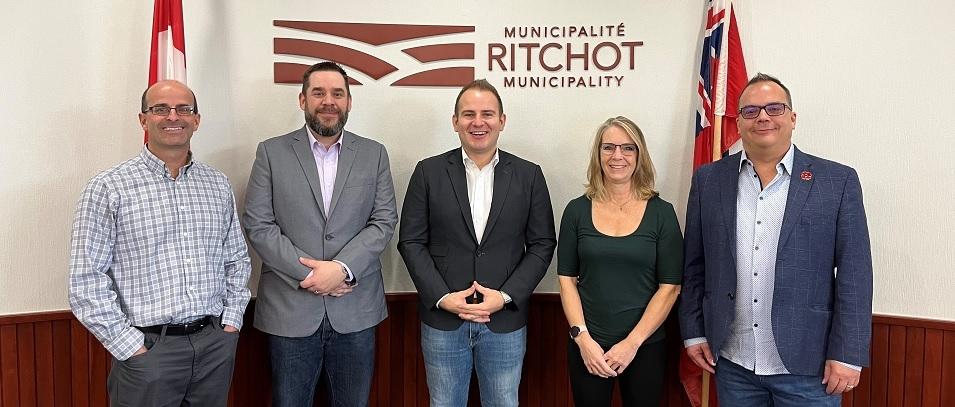In the interest of creating a more sustainable and kinder approach to the environment, the RM of Ritchot’s council has been actively seeking ways to improve on what they do.
Last year, they made a commitment to restore native grasslands in the municipality’s parks, trails, and retention ponds. Last month, they advertised for the new position of energy efficiency advocate, whose job it will be to promote environmental stewardship.
At their February 22 public meeting, council entertained a delegate from Food Cycle Science who had come to speak about food waste diversion options.
Brigitte Kirady is the municipal program coordinator for Food Cycle Science, an Ottawa-based corporation whose mission is to promote widespread food waste solutions for Canadians.
Last year, Food Cycle Science was chosen as a finalist in the federal government’s Impact Canada Food Waste Reduction Challenge. As such, the company received a $400,000 grant, which Kirady says is being invested back into municipalities who are willing to partner with them.
Since that time, Food Cycle Science has been working with 120 municipalities across the country to initiate buy-in for a food waste solution they’ve developed.
“Food waste is a big problem that has a strong municipal impact,” Kirady told council. “Because food waste makes up such a large portion of our waste stream, it’s causing our landfills to fill up quickly. Operating a landfill is costly for a municipality, so we want to extend the lifespan for our landfills as long as possible.”
According to Kirady, food waste comprises up to 50 percent of household waste in Canada and is responsible for creating 56.6 million tonnes of C02 gasses every year when it ends up in a landfill.
For perspective, she says, one tonne of food waste in a landfill has about the same environmental impact as one vehicle on the road.
While some cities, towns, and municipalities have adopted green bin programs, similar to garbage and recycling programs, the capital costs involved in the collection and processing of food waste is prohibitive and far from earth-friendly.
Inviting individual residents to do backyard composting is a really good solution, she adds, but participation rates are quite low, statistically.
A unique alternative, called the Food Cycler, is what Food Cycle Science is all about. The Food Cycler is a home appliance that occupies about the same amount of space as a bread machine and turns food waste into a nutrient-rich soil amendment in just a matter of hours.
The byproduct is dry, sterile, and odorless. It takes up about one-tenth the mass and weight of the food waste it originated from. It can be added to garden beds once complete.
“From an environmental standpoint, the Food Cycler is a net negative carbon solution,” Kirady said. “What that means is that, just like planting trees or using solar panels, when you use the Food Cycler to avoid sending food waste to a landfill, you’re avoiding more greenhouse gasses than you’re creating.”
The Food Cycler pilot program, on a local scale, encourages municipalities to purchase these appliances at a subsidized rate and then further subsidize the units for their residents to use.
In the case of Ritchot, Kirady recommended starting with 100 units, which would cost the RM $10,000 plus shipping and taxes. The RM would, in turn, sell the units to local residents for in-home use.
Participating residents would enter into the program with the understanding that they’d be part of a bigger municipal project. After 12 weeks of tracked use, residents would complete a survey provided by Food Cycle Science. For their participation, residents would be allowed to keep the appliance.
In turn, Food Cycle Science would compile the data received and present it to Ritchot’s council in order to help them determine the value that was derived from the food waste diversion in their municipality.
If they believe there was merit there, grants could be sought to help expand the program locally.
Kirady says that her company’s program is already servicing more than 10,000 households across the country and this has helped to divert about 3,000 metric tonnes of CO2.
Manitoba municipalities currently partnering with Food Cycle Science include Stonewall, the RM of Montcalm, West St. Paul, and Portage la Prairie.


